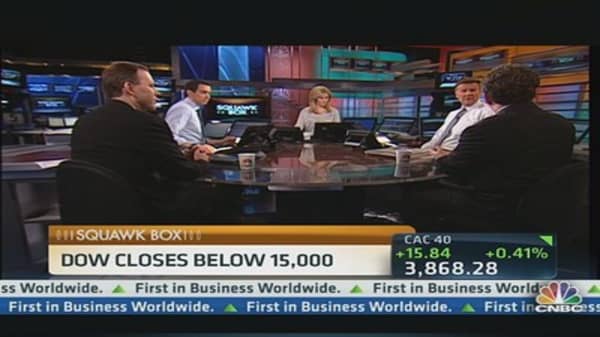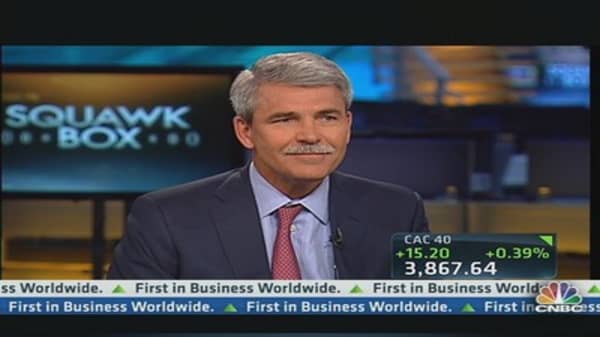Jonathan Golub, chief US equity strategist at UBS Investment Research:
With a year-end target of 1,425 on the S&P 500, Golub said, "I think that a lot of strategists every time the market moves adjust and I kind of put an anchor out there. Stocks are going to continue to come back a bit. The next two, three, four months we're going to see some continued economic weakness."
"The Fed is intentionally confusing the markets, perhaps, setting up for a pullout later on and I think it's causing a little caution here," he added. "The Fed, on one hand, they're saying we could go up or down [on quantitative easing]. On the other hand, they're saying we think we need to taper. I think it's a way for them to manage an exit later on."
Jim O'Sullivan, chief U.S. economist at High Frequency Economics:
"The economy is doing OK, it's not great. It's a battle between fiscal drag and monetary stimulus…and the more [the Fed] keeps pushing, [they'll] ultimately win this battle. Arguably when you look at the labor market and the downturn in the unemployment rate, the Fed is winning. It's a long battle of the unemployment rate is legitimately coming down."
O'Sullivan added, "I clipped a little bit [Wednesday] after the employment part of ISM as well as ADP to 150,000, which still wouldn't be a bad number but not quite as good as we've seen. So far this year, the trend has been 196,000 per month. [The] six month average is over 200,000. The numbers have been quite good. Certainly more than enough over time to bring down unemployment. But the risk is Friday is a little worse."


.530x298.jpg?v=1370447694)



